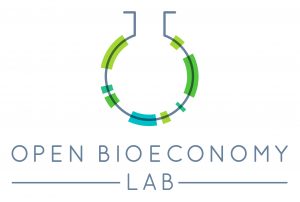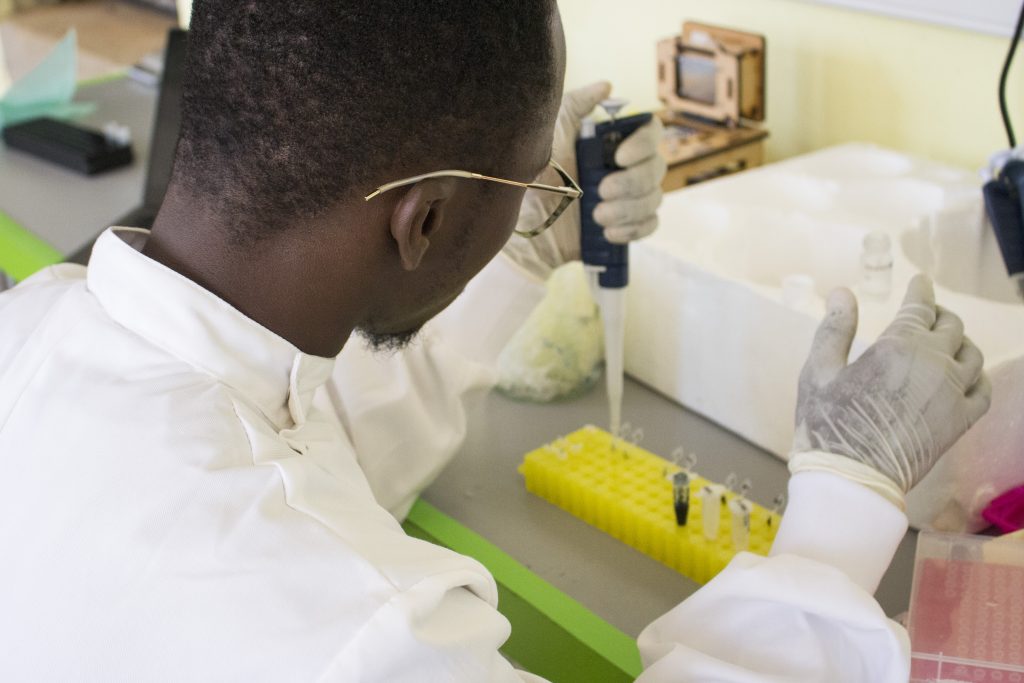Dr Jenny Molloy of Open Bioeconomy Lab presented alongside Drew Endy (Stanford University, Andy Marshall (Editor-in-Chief, Nature Biotechnology), Rick Johnson (Global Biofoundry Alliance, iGEM, BioBricks) and Keoni Gandall (Lead Designer, Stanford FreeGenes Project) at SynBioBeta’s Built with Biology Summit on Wed 4 June 2020.
The theme of the session was that ownership and sharing underpin both innovation and economic growth, enabling or delimiting how much can be built with biology (or not). From COVID19 rapid response to diverse existing biotechnologies, access to content, tools, and capacities shape the culture of biotechnology and how society-at-large considers, accepts, or rejects biotechnology. The panel related their experiences and best practices so that we can make sure that the future is open for building with biology.
You can see a write-up of Jenny’s contribution below and this post will be updated with the video when it is made available.
"We want to make the largest impact in the world, and for us openness helps delivering that impact" @jenny_molloy @SynBioBeta #BuiltWithBiology
— Open Bioeconomy Lab (@openbioeconomy) June 3, 2020
Open for Business in the global bioeconomy
I want to talk about two types of open: open technologies and open participation and how they map onto creating a global equitable bioeconomy. Too often discussion on open technologies in biotech polarises into two messages: it’s a panacea and it’s completely incompatible with running a sustainable and profitable business. We need more context and nuance: to whom are technologies open; who benefits and how to they interact across the whole innovation ecosystem. However, I only have five minutes so I’m going to hone in on open technologies as tools and innovation material for businesses.
For me, open technology is defined by freedoms and the most fundamental is non-discrimination against field of endeavour. So open is inherently open for business – people can use, reuse, sell and build upon open technologies. This is great news for biotech and there is a rich public domain technology out there waiting and ready at your service, both born open and off-patent (as demonstrated in the Public Domain Gazette). My team are synthesising with Free Genes 85 off-patent enzymes and 42 genetic reporters that are essential tools used by biotech businesses on a daily basis (the Open Enzyme Collection) – this is really important for startups who want to keep their costs and transactions low. Patents are a fantastic source of information driven by a societal trade-off: don’t keep your inventions secret and we’ll give a period of exclusivity but after that the technology belongs to everybody. And right now there are swathes of the planet where (outside of the pharmaceutical sector) businesses have complete freedom to use biotech in their local economies BUT it isn’t happening. So legally open technologies are important material for innovation but they’re insufficient for global participation in the bioeconomy and we have other problems to fix.
I spent a year interviewing molecular biologists in the global South what they told me was that resource constraints imposed by the existing market for essential biological tools deny them the ability to innovate – to try, fail and try again – even when they have the same funding and abilities as researchers in the global North. In large part this is because vital research tools are more expensive and take months to reach their lab bench.
If you’re talking about products that require specialist manufacturing and have vertically integrated business models like in vitro diagnostics then the situation is exacerbated and the COVID-19 pandemic has brought global reagent supply chain challenges, which were a day to day reality for all biologists in the global South, to international attention. Africa CDC head John Nkengasong said that “a failure of international solidarity [has] shoved Africa out of the diagnostics market. African countries have funds to pay for reagents but cannot buy them”.
This really reduces the autonomy of countries in general but of entrepreneurs in resource-constrained contexts to set their own research and innovation agenda to meet local challenges.
So if we’re serious about a global equitable bioeconomy then we need to provide a functioning pipeline for the tools that underpin the bioeconomy and to start investing in local capacities for bioproduction. I’ve founded a not-for-profit called Beneficial Bio in the UK which supports social enterprises to locally manufacture enzymes for research in Africa using an open source manufacturing model where biological tools make more biological tools: a hardware analogy is the RepRap 3D printer which “prints itself”. Our first manufacturing and distribution hub is a MboaLab Biotech, a startup in Cameroon and we’re also joining forces with researchers fro across the world including a strong cohort of academics and small companies in Latin America to form Reclone, the reagent collaboration network to support local biofoundries and biomanufacturing efforts.
What can we do about this at a policy level? If we’re serious about a global equitable bioeconomy then two things:
- Put in place resources and innovation policies that make good on the societal contract signed by patent holders and make the public domain used and useful.
- Invest in infrastructure, supply chains and distribution of biomanufacturing capacity because it has the potential to generate positive feedback loops that might just give bioeconomies the starting push that they need.


